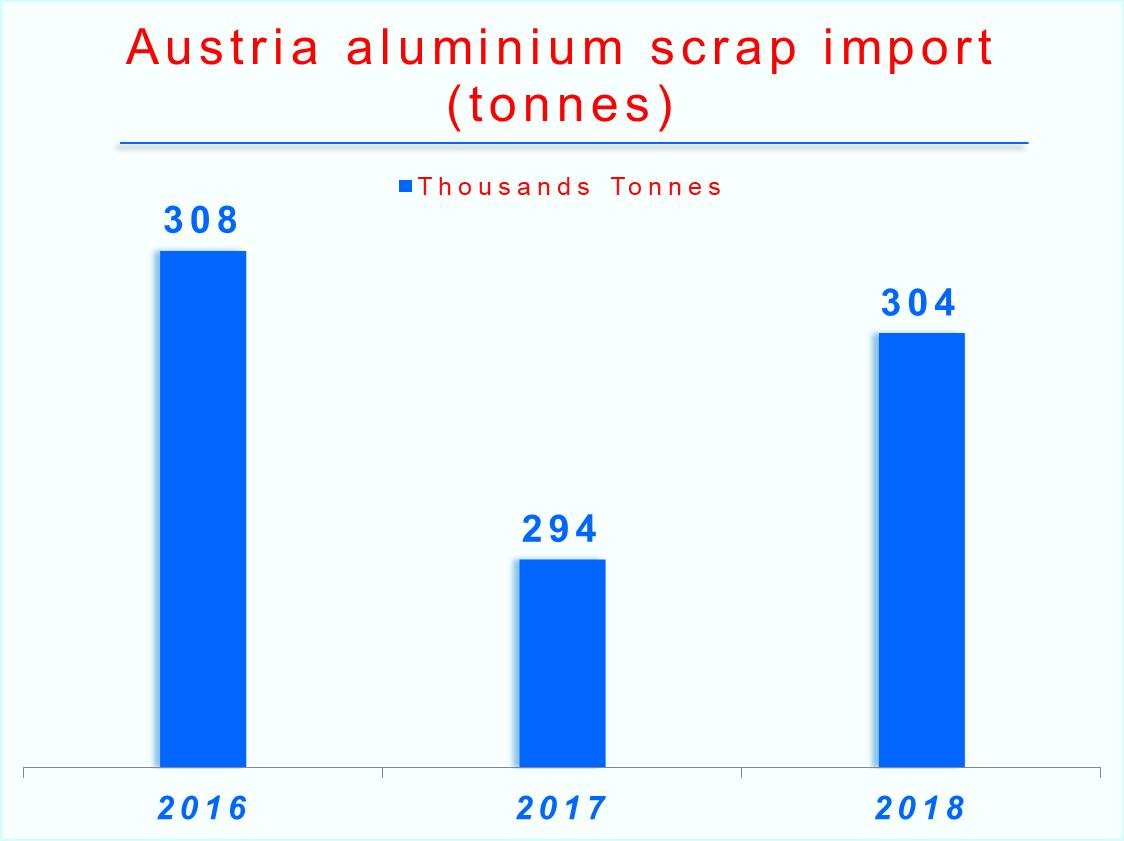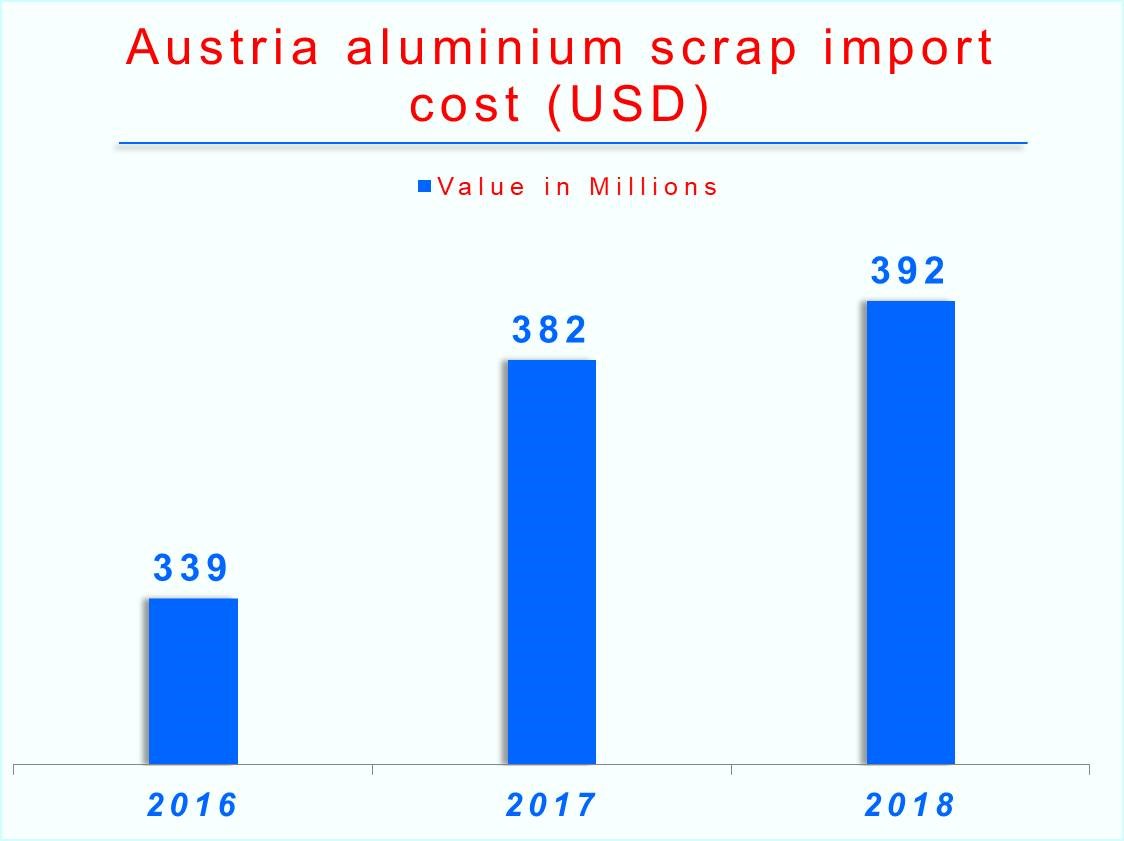Austria aluminium scrap import to grow in 2018 from year ago; Germany to continue as the top exporter
Aluminium recycling is part of Europe’s wider Aluminium industry, a sector of the economy that generates almost €40 billion revenue a year and directly or indirectly employs more than one million people. Aluminium beverage cans contribute to a large extent to the overall estimated recycling result of 65% for all aluminium packaging. After Germany, Finland, Belgium, Norway, and Switzerland, Austria’s name also comes in collecting and recycling the aluminium beverage cans. The country also imports a significant amount of scrap for recycling.
According to the global export-import data, Austria is estimated to import 304,512 tonnes of aluminium scrap in 2018 against the import volume of 294, 368 in 2017. This means the country this year is likely to import 3.4 per cent higher compared to the previous one. In 2016, on the other, the estimated aluminium scrap import volume by Austria was at 308,225 tonne, which was around 5 per cent and 1.2 per cent higher than its two succeeding years. So, needless to say, that even though Austria’s aluminium scrap imports are estimated to see a rise this year from 2017, yet would stand down from 2016.
{alcircleadd}
But surprisingly, despite the estimated import volume in 2018 to stand low than in 2016, the cost is expected to see a rise. This year, Austria’s aluminium scrap import cost is anticipated to hover around US$ 392 million, up 16 per cent from US$ 339 million in 2016. In fact, the import cost in 2017 also stood higher than in 2016 at US$ 382 million, but certainly lesser than 2018.

Germany is the top exporter of aluminium scrap to Austria. In 2018, the country is expected to export 187,039 tonnes, up 2 per cent from 183,555 tonnes in 2017 but down by 10 per cent from 208,262 tonnes in 2016.
This news is also available on our App 'AlCircle News' Android | iOS



























